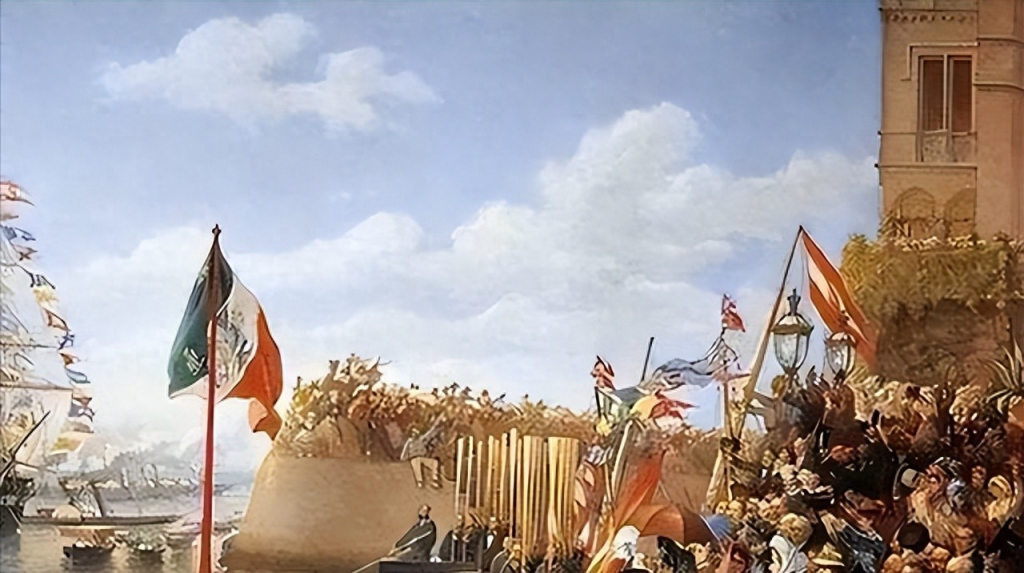Portugal, once a mighty sea power, ruled over vast colonies across Africa, Asia, and beyond. Today, however, it’s one of Europe’s poorest countries, grappling with an economy that struggles to keep afloat and an almost silent voice on the international stage. So, what went wrong for this former empire? Let’s take a closer look at how Portugal’s rise and fall serve as a vivid reminder of the importance of national strength.

From Poverty to Maritime Supremacy: The Rise of Portugal
Let’s rewind a bit—back in the 15th century, Portugal was not much more than a small, overlooked country tucked away in the southwestern corner of Europe, wedged between Spain and the Atlantic Ocean. With few resources and a modest population, it was not exactly a powerhouse.
But hardship breeds innovation. Facing tough times, the Portuguese set their sights on the sea. Enter Prince Henry, famously known as “Henry the Navigator.” While he never sailed a ship himself, he founded a navigation school and brought together experts to create better maps and ships. This move would prove to be a game-changer.
In 1488, Bartolomeu Dias rounded the Cape of Good Hope, and in 1498, Vasco da Gama reached India, opening up vital trade routes. Portugal’s fleets were soon filled with spices and gold, making Lisbon one of Europe’s most prosperous ports. The 16th century saw Portugal expand its empire quickly, with colonies in Africa, Asia, and South America. Portugal, once a small nation, had transformed into a dominant European power.
However, such glory came at a cost. Portugal’s ruthless exploitation of its colonies for resources, and the oppression of native populations, was a short-term gain that would eventually lead to its downfall.
The Brief Glory: Decline of the Colonial Empire
As quickly as Portugal rose, it began to fall. The 17th century marked the beginning of Portugal’s decline. Its remote position in Europe kept it isolated from the Industrial Revolution sweeping across the continent. Meanwhile, its rivals—especially the Dutch—had their eyes set on the same trade routes, and they were eager to seize control of what Portugal had built.
By the 19th century, Napoleon’s forces had marched into Portugal, forcing its royal family to flee to Brazil. As Brazil soon declared its independence, Portugal lost its prized colony. This loss was a major blow to the Portuguese empire, and the decline only worsened after World War II, as the global decolonization movement gained momentum.
In 1961, India took Goa by force, and in 1975, Indonesia invaded East Timor. Both times, Portugal’s military was ill-prepared, and the colonial territories quickly fell. The consequences were far-reaching—Portugal’s international status plummeted, and even its NATO allies offered little help. The harsh reality hit home: treaties and alliances are only as strong as the power behind them.
NATO’s Illusion: The Limits of Alliances
Portugal joined NATO in 1949, hoping to revive its military and economic fortunes. However, the alliance didn’t bring the expected results. When India invaded Goa in 1961, Portugal appealed to NATO for support, but none of its allies came to the rescue. Again, in 1975, when Indonesia invaded East Timor, Portugal sought NATO’s help, but there was no response. In both instances, Portugal’s lack of power rendered its treaties useless.
This reveals a hard truth: alliances can only do so much. Portugal had hoped that by joining NATO, it could gain leverage, but without the necessary strength to back up its position, its allies were uninterested in coming to its aid.
Portugal Today: Struggling in the Modern World
Fast forward to the 21st century, and Portugal’s struggles are far from over. The country’s economy continues to lag behind other European nations. Despite being part of the European Union, Portugal faces high unemployment, particularly among young people, who are increasingly seeking work abroad. The aftermath of the 2008 financial crisis was devastating, pushing Portugal into crippling debt and forcing the government to rely on EU bailouts.
Today, Portugal is often seen as the “poor relative” in Europe, a far cry from its former glory. Its economy remains fragile, with a lack of industrial development and an aging population, which makes it hard to compete with larger European economies like Germany and France.
The Takeaway: Power is Key to Survival
Portugal’s story is a cautionary tale. At its peak, Portugal thrived thanks to its maritime dominance and colonial empire. But as global dynamics shifted, the country’s lack of industrial development and internal strength caught up with it. The loss of its colonies exposed the fragility of its economic model, which relied heavily on exploitation rather than innovation.
The rise and fall of Portugal show us that true power comes from within. No treaty or alliance can save a nation if it lacks the strength to stand on its own. Whether in the past or today, national power—be it military, economic, or industrial—is the key to a country’s survival on the global stage.


No comments yet.